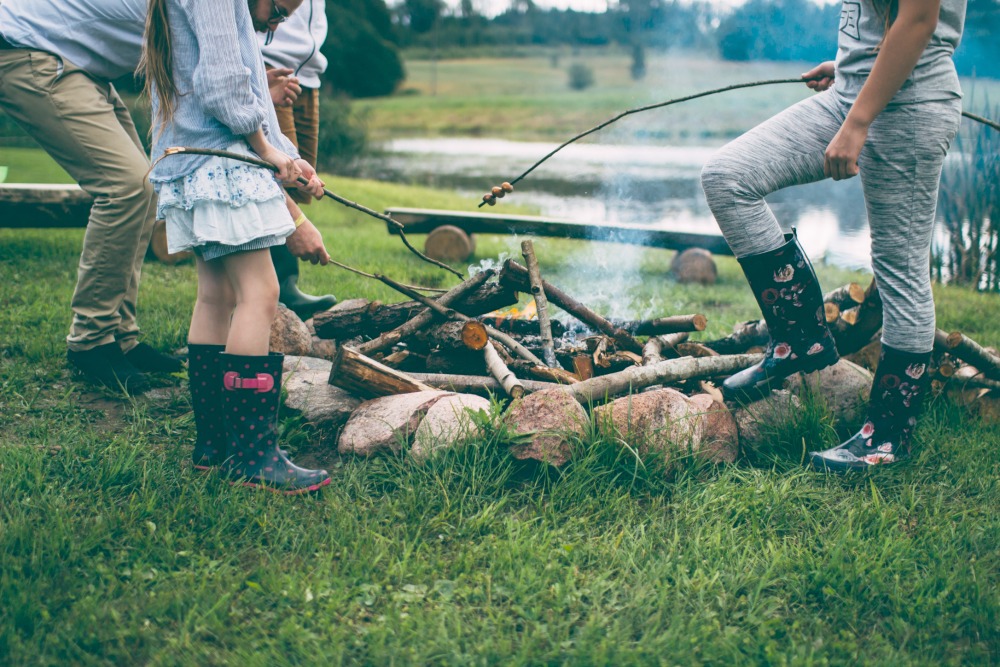Ask any step-parent and they will tell you, creating boundaries with your partner regarding step-parenting is essential for a happy blended home.
Parenting advice regarding how to deal with stepchildren can be confusing. You don’t want to overstep any boundaries with your spouse or step-children. At the same time, you want to ensure that you’re able to provide guidance and receive respect from your partner’s children.
Each child is unique, so your step-children may welcome you into the family with open arms or they may rebel against you. Regardless of how you are received by your spouse’s children, there are important parenting tips to keep in mind once you become a blended family.
Ask questions.
Ask your spouse specific questions to get the answer you want. For example, they may not want you to punish the children or scold them, but what if you are witnessing them deliberately breaking house rules – such as in the case of them sneaking out at night. Should you step in?
Other questions to ask include:
- Am I allowed to discipline the children? If so, are there any topics or situations that you would prefer to handle on your own?
- How are my individual relationships doing with the children? Do I favor one over the other?
- What should I do if I grow frustrated with the child’s behavior?
- If both parents have children, how will they ensure no one feels neglected?
Being clear about your questions will lessen the chances of having misunderstandings.
Communicate with your partner about boundaries.
The best parenting advice you can follow regarding how to deal with stepchildren is to communicate with your spouse. How do they want you to move forward as a stepparent? Odds are they will have strong opinions about whether you should be involved with the discipline process.
It’s beneficial to talk about the core issues that you and your spouse agree on and narrow down your differences in how you approach parenting. Doing so will help you further define your role.
In the end, it is up to your spouse to decide what role you will play in their child’s life regarding discipline.
Support your spouse’s parenting choices.
You may not be able to discipline or mentor your stepchildren, but that doesn’t mean you can’t help the process to be pleasant.
While it is up to your spouse to deliver consequences for wrongdoing, you should play an active part in supporting their parenting choices. This will help your stepchildren to view you as their parent’s ally, instead of their co-parent.
Involvement with both biological parents.
It may be in the best interest of all involved if you are able to have a conversation with both biological parents about how to move forward as the stepparent. This allows everyone involved to voice their expectations and concerns.
When the children involved hear that you have discussed this topic with both of their parents, they will feel more comfortable with the situation. This will make things feel more like a collaboration of adults and less like you are trying to replace their loved one.
Of course, this is only possible if your partner has a cordial relationship with their ex.
Encourage biological parent bonding.
Overcome any jealousy you might feel for the ex by supporting their relationship with their child. By taking this road you will lessen any resentment the child may feel toward you for ‘replacing’ their parent.
What happens if your spouse doesn’t want you involved?
If your spouse decides that they would prefer you not play a role in disciplining, guiding, and supervising their children you may feel like your hands are tied.
Their decision may seem unfair and it might hurt your feelings, but you must respect your spouse’s decision regarding the care of their children. Over time they may allow you more responsibility when it comes to childcare, but until then you must follow their lead.
Think about what you can do.
It can be difficult if your spouse would prefer you take a step back from disciplining their children. But instead of thinking of what you can’t do for them, think of what you can. Such things may include:
- Encouraging them to pursue their dreams.
- Teaching them a skill.
- Being a listening ear.
- Celebrating their achievements.
- Studies show that a parent’s mental outlook can have a direct effect on their child’s behavior. Set a good example by having a positive outlook on your blended family and you may see your stepchildren follow suit.
Focus on spending time individually with your stepchildren and creating your own special bond with them. Support their decisions, make jokes with them, create family hobbies together. These things are what will help you grow together as a new family.
Consider the child’s age.
How you approach building a relationship with your stepchild will have a lot to do with their age.
If you are coming into a marriage where your stepchild is five years of age or younger, you will have a much easier time getting them to adjust you as a stepparent. If your stepchild is a teen or approaching their teenage years, things can get a little trickier.
In either case, it is important for you to try and establish a respectful relationship without seeming like you’re trying to replace their biological parent.
Be patient.
Being a stepparent is hard work. You will have days where you love your new kids to bits and others where you will wonder why you ever signed up for life as a blended family.
By assuming a role of authority in the house, you will have your self-esteem put to the test. Your new children may question you, rebel against you, or try and sabotage your relationship.
Just like any new parent, learning how to deal with stepchildren in a blended family is going to take patience. As can learning what your role is in their lives.
There is a learning curve, but with time you will develop your own relationship with your spouse’s children.
A final word …
Step-parenting comes with many challenges. In order to be successful, your partner must be open with you about the role they would like you to play in their child’s life. Encourage your new children and let them know that you want the best for them. And above all else, don’t give up!
About the Author: Rachael Pace

Rachael Pace is a relationship expert with years of experience in training and helping couples. She has helped countless individuals and organizations around the world, offering effective and efficient solutions for healthy and successful relationships. She is a featured writer for Marriage.com, a reliable resource to support healthy happy marriages.


![It’s the simple things that are everything. We know play, conversation, micro-connections, predictability, and having a responsive reliable relationship with at least one loving adult, can make the most profound difference in buffering and absorbing the sharp edges of the world. Not all children will get this at home. Many are receiving it from childcare or school. It all matters - so much.
But simple isn’t always easy.
Even for children from safe, loving, homes with engaged, loving parent/s there is so much now that can swallow our kids whole if we let it - the unsafe corners of the internet; screen time that intrudes on play, connection, stillness, sleep, and joy; social media that force feeds unsafe ideas of ‘normal’, and algorithms that hijack the way they see the world.
They don’t need us to be perfect. They just need us to be enough. Enough to balance what they’re getting fed when they aren’t with us. Enough talking to them, playing with them, laughing with them, noticing them, enjoying them, loving and leading them. Not all the time. Just enough of the time.
But first, we might have to actively protect the time when screens, social media, and the internet are out of their reach. Sometimes we’ll need to do this even when they fight hard against it.
We don’t need them to agree with us. We just need to hear their anger or upset when we change what they’ve become used to. ‘I know you don’t want this and I know you’re angry at me for reducing your screen time. And it’s happening. You can be annoyed, and we’re still [putting phones and iPads in the basket from 5pm] (or whatever your new rules are).’♥️](https://www.heysigmund.com/wp-content/plugins/instagram-feed-pro/img/placeholder.png)
My husband just told me I need to back off parenting his son. I’ve been here for 9 years and now he wants me to back off. So I will. I will absolutely no longer parent his now 10 year old. That also means I won’t do things parents would traditionally do. If I’m meant to be in the house purely for decoration then that is exactly what I’ll be doing. I’ve been reading these articles all day and they all say the same thing. Step moms shouldn’t try to be anything. and that is correct. step moms are the most hated group of people in this world. We are all seen as evil and anything we do that isn’t perfect gets us crucified. seriously heading to the courthouse like yesterday.
Im sorry, but this philosophy of “step back and let their bio parent raise them” does not work in a household with yours, mine, and ours kids. You will obviously be forced to treat your stepchildren differently (and they will notice trust me) if you are only permitted to be involved with the good and the bad and ugly you are excluded. they know you have no power and use that to make your life miserable. So you end up being a prisoner in your own home.
I agree.
Im 60 and for first time am a step parent. Wasn’t allowed to have children before, in my past married…..but now… I have been married 1 year…. to a sweet man who has a 15 year old son, has 1/2 custody. The issue is that I am also the survivor of 27 years domestic violence. “I” am having a hard time dealing with the step child. I think your article hit it on the head, the child feels loyal to his biological mom and is either hostile towards me of coldly indifferent. And that is Okay…I understand that…His dad makes excuses and or doesn’t see it. I want this to work as I love my husband..but having difficulty with my past experiences, PTSD and dealing with the hostility at home. I am not sure I will be able to survive not taking this personally….any ideas?